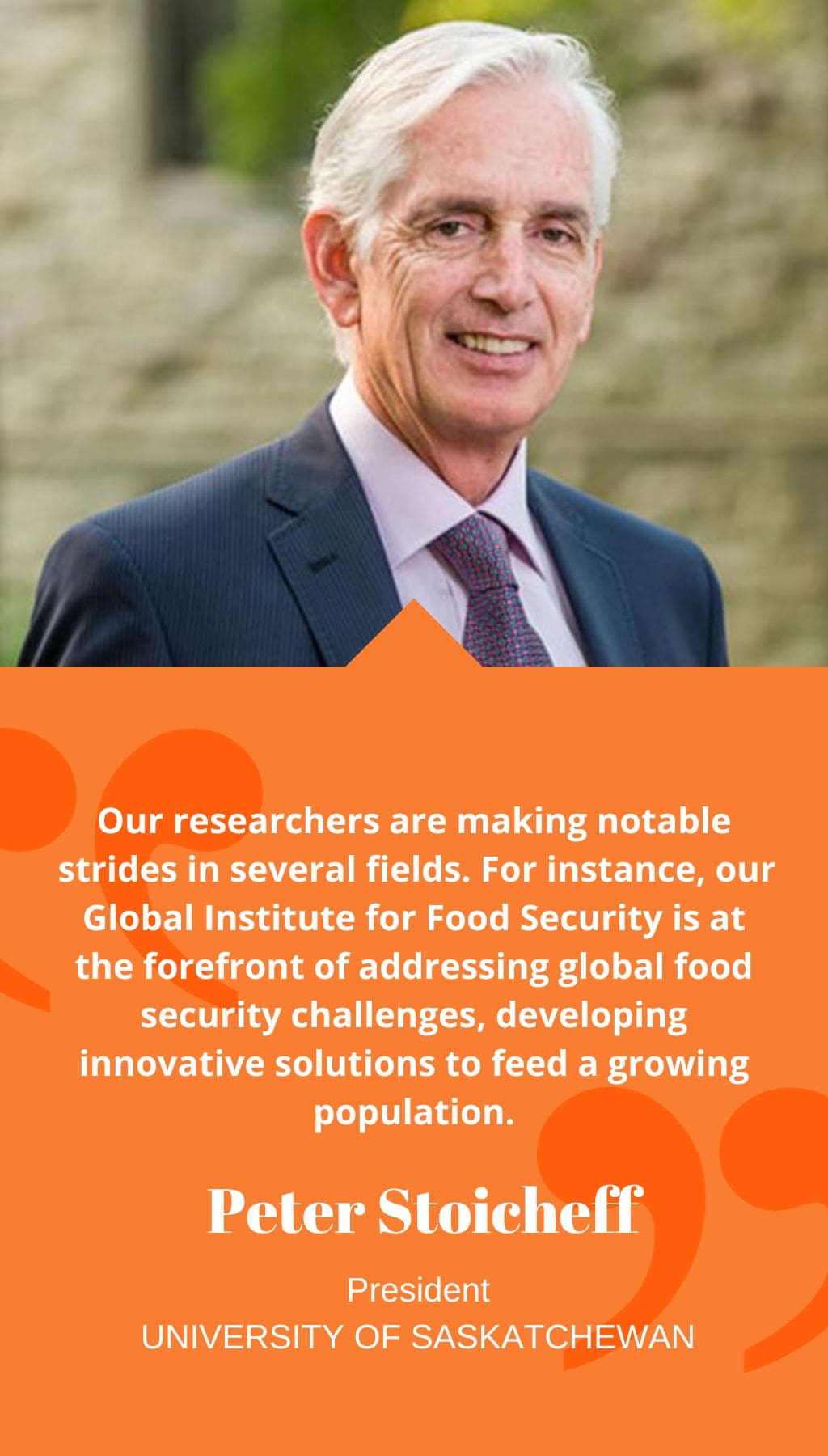
- Canada | 29 May 2023

Could you provide our readers with some insights into the strengths of the University of Saskatchewan and how it plays a pivotal role in Canada’s reputation as a premier education destination?
The University of Saskatchewan, or USask as we’re often called, is known for its world-class research, innovative programs, and commitment to inclusivity. We take pride in our diverse community, which includes students and faculty from all over the world.
Our strengths lie in areas such as agriculture, health sciences, engineering, and environmental studies. We have state-of-the-art facilities and laboratories that support cutting-edge research. USask is also recognized for its Indigenous engagement and reconciliation efforts, contributing to a more inclusive Canadian higher education landscape.
Research is a vital component of higher education. Could you highlight some recent research initiatives or achievements at the University of Saskatchewan that have made a significant impact on both the local and global levels?
Of course. Our researchers are making notable strides in several fields. For instance, our Global Institute for Food Security is at the forefront of addressing global food security challenges, developing innovative solutions to feed a growing population.
We’re also pioneers in water security research, given Canada’s vast freshwater resources. Our researchers work on sustainable water management practices, a critical issue not only for Canada but also for regions worldwide.
In the area of Indigenous health, we’re committed to improving the well-being of Indigenous communities. Our research contributes to addressing health disparities and promoting cultural safety in healthcare.
The University of Saskatchewan has a strong emphasis on Indigenous engagement. How does this focus contribute to the inclusivity of the Canadian education system?
Indigenous engagement is central to our university’s identity and mission. We are located on Treaty 6 territory and the homeland of the Métis, and we have a responsibility to promote reconciliation and build meaningful relationships with Indigenous communities.
By incorporating Indigenous perspectives and knowledge into our curriculum, fostering Indigenous leadership, and creating supportive spaces for Indigenous students, we’re not only enriching the educational experience at USask but also setting an example for the entire Canadian education system. This inclusivity benefits all students by fostering cultural understanding and respect.
Looking ahead, what role do you see the University of Saskatchewan playing in shaping the future of the Canadian education system, particularly in the context of evolving global education trends?
As we move forward, USask aims to be a leader in addressing emerging global challenges through education and research. We’re dedicated to expanding our international partnerships and collaborations, providing our students with global perspectives and experiences.
In terms of technology, we’re adapting to the digital age by enhancing our online and blended learning offerings. This flexibility ensures that our students are well-prepared for the future job market, which increasingly values digital literacy and adaptability.
Additionally, we are committed to increasing accessibility to higher education, making sure that education is affordable and attainable for students from all backgrounds.
What message would you like to convey to our international readers who may be considering the University of Saskatchewan for their higher education journey in Canada?
I want to extend a warm invitation to join us at the University of Saskatchewan. Whether you’re passionate about research, innovation, or contributing to a more inclusive world, USask offers a supportive and enriching environment.
Canada is known for its welcoming and diverse society, and our university reflects these values. We look forward to welcoming you to our vibrant community, where you can pursue your academic and personal goals while making a positive impact on the world.














